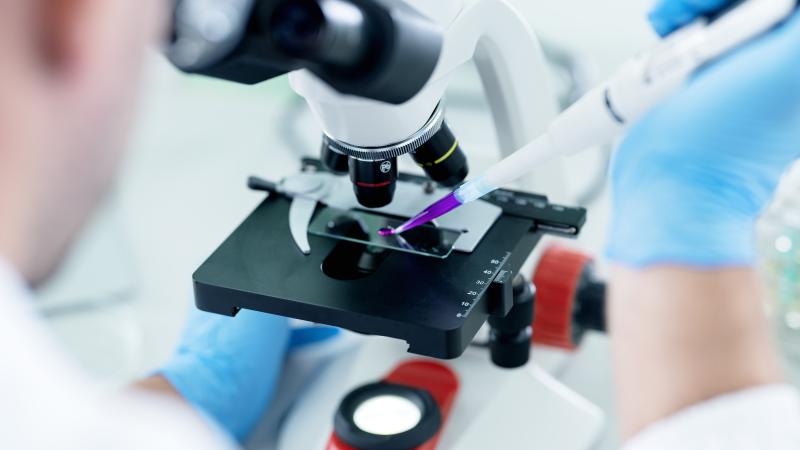'American Horror Story': Memos show NIH paid university to deliver fetuses intact, remove organs
Brag about minimizing "warm ischemic time" suggests quick turnaround between abortion and collection, Judicial Watch says.
The National Institutes of Health approved a $3.2 million grant to the University of Pittsburgh that involved inducing labor on full-term pregnant women and quickly removing organs from intact fetuses for its tissue bank, according to newly released public records.
The 2015 grant application also promised about half the fetuses whose organs were removed would be nonwhite, including a quarter black.
Judicial Watch sued NIH on behalf of the Center for Medical Progress (CMP) following "inexplicable delays" by the agency in responding to the pro-life group's Freedom of Information Act request for the grant applications for Pitt's proposed "tissue hub and collection site," CMP said Tuesday.
The two groups posted hundreds of pages, some fully redacted, they received from NIH, with several posted individually to highlight specific portions of the program.
CMP's posted records are about 70 pages longer than Judicial Watch's because the former includes "some non-Pittsburgh documents in the NIH production itself," an unnamed CMP spokesperson wrote in an email.
While often written in medical jargon, the records make clear that Pitt promised NIH it could obtain "very high quality tissue and biological specimens" from at least five fetuses a week, ages 6 to 42 weeks. It was in the process of altering its Institutional Review Board and autopsy consent forms to permit collection of aborted fetuses older than 24 weeks.
The university was seeking to become the hub and distribution site for the human spinoff of the GenitoUrinary Development Molecular Anatomy Project (GUDMAP), which had successfully mapped mice.
"Congenital diseases of the genitourinary tract (kidneys, bladder, ureter, urethra etc.) are a leading cause of organ failure carrying with it an increased risk of death, and are a growing public health burden," the abstract says.
Because demand for transplants far exceeds supply, a "comprehensive understanding of how the genitourinary tract develops in utero is necessary to effectively develop novel therapies to replace or repair injured tissue," it says, proposing to "develop optimized experimental techniques to grow, expand and differentiate human genitourinary progenitor cells in vitro."
When it filed the application, Pitt had "disbursed over 300 fresh samples collected from 77 cases," but it could have accrued material from "as many as 725 cases last year," showing the collections "can be significantly ramped up."
Pitt already has 18 years of experience with its Health Science Tissue Bank (HSTB), according to the proposal. Its researchers have been collecting fetal tissue for more than a decade, currently focused on 6-24 weeks, and the collections include "liver, heart, gonads, legs, brain, genitourinary, and placenta." A redacted portion says an unnamed entity has been using HSTB to get kidneys, ureters and bladders.
University entities involved in the process include the University of Pittsburgh Medical Center and departments of family planning, obstetrics and pathology, as well as the Children's Hospital of Philadelphia. Consents and collections have been "steadily increasing" since 2010, "and we are in an excellent position to expand our services to include the needs of" the proposed program.
A registered nurse asks all patients seeking an elective abortion, or having experienced a spontaneous abortion, if they want to "give consent for tissue procurement and banking."
The recruitment proposal says patients sign a consent form for "the procedure that will be used to obtain the tissue," including dilation and curettage, dilation and evacuation, and "labor induction." The attending physician has sole discretion for determining which procedure to use.
Pitt emphasizes its quality-control procedures for abortions in the human GUDMAP. It minimizes "warm ischemic time" — how long tissues or organs remain at body temperature after blood supply is reduced or cut off — "to ensure the highest quality biological specimens."
In a labor-induction abortion, if the fetal heartbeat and circulation continue, "it means the fetus is being delivered while still alive and the cause of death is the removal of the organs," CMP said.
"Warm ischemic time differs from cold ischemic time which refers to [the] amount of time the organ is chilled," Judicial Watch said. "Pitt's statement suggests the time between the abortion and collection is minimal."
The litigation group said the documents show NIH has paid at least $2.7 million to Pitt thus far, but it didn't post the individual page on which that figure appears. Spokesperson Jill Farrell said she would ask a researcher for that page. (The document dumps are not text-searchable, but the individually posted pages are.)
CMP founder David Daleiden, the journalist at the center of the 2015 Planned Parenthood fetal body part scandal, said the grant application "reads like an episode of American Horror Story."
Viable infants, he claimed, are intentionally delivered and "killed for organ harvesting" to bring taxpayer money to Pitt "and the Planned Parenthood abortion business it supports." He also called the program racist because of the overrepresentation of black women in the program relative to Allegheny County, "from which Pitt-based abortion practices draw patients."
Daleiden called on law enforcement and public officials to "bring the next Kermit Gosnell to justice under the law," referring to the Philadelphia abortionist convicted of first-degree murder for killing infants born alive in his "house of horrors."
(For his undercover work in exposing Planned Parenthood, Daleiden was prosecuted by then-California Attorney General (now Biden Administration HHS secretary) Xavier Becerra. Daleiden is slated to stand trial on nine felony counts involving eavesdropping and invasion of privacy.)
The documents show NIH gave money to Pitt to become "a one-stop human fetal tissue shop," Judicial Watch President Tom Fitton said.
NIH and Pitt did not respond to Just the News queries for their reactions to the document dump and negative portrayal of Pitt's program by CMP and Judicial Watch.













